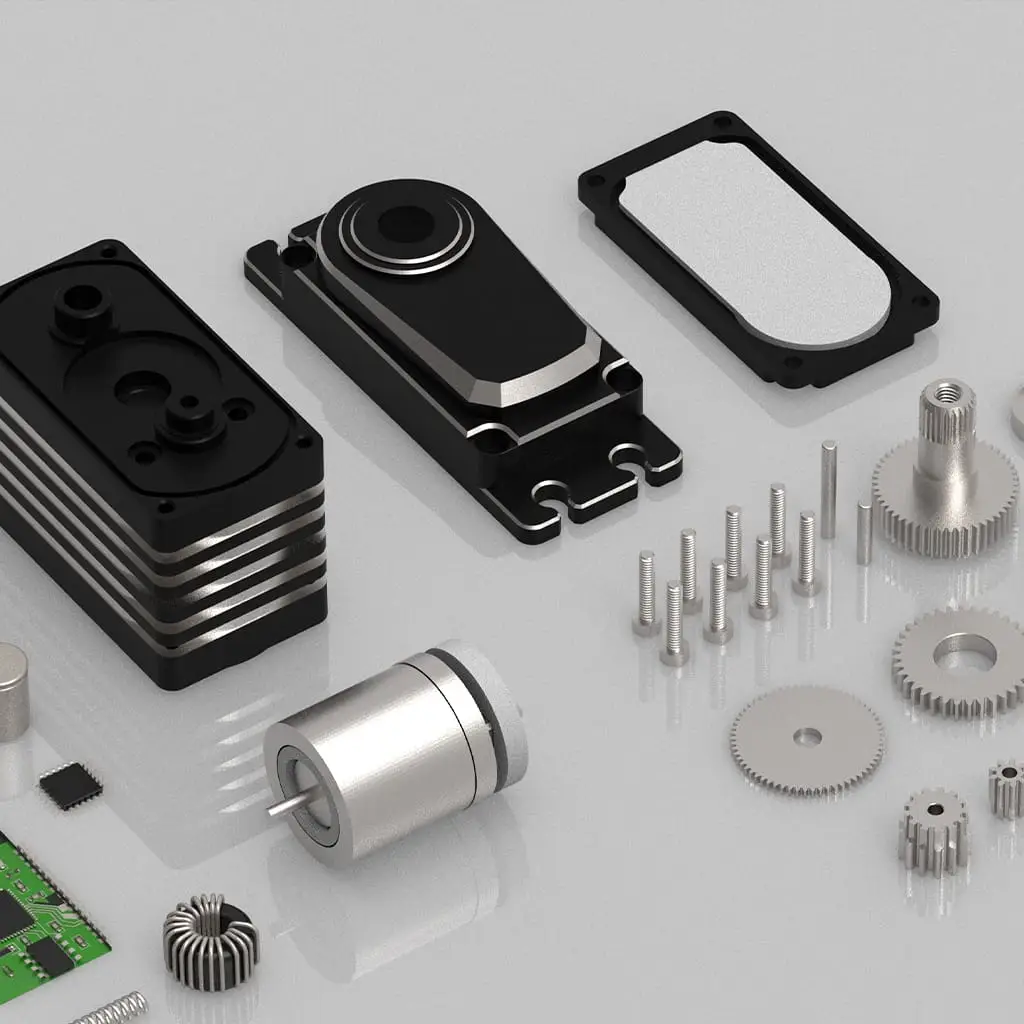Introduction
As medical equipment advances toward automation and intelligence, heavy-duty medical devices impose higher performance demands on their core drive components. Serving as one of the essential actuators in medical devices, servos play an irreplaceable role in heavy-duty equipment. This article explores the performance requirements for servos in heavy-duty medical devices, combined with the technical features of GXServo, and highlights innovative breakthroughs in the industry to provide insights for medical device manufacturers.
1. Application Scenarios of Servos in Heavy-Duty Medical Equipment
Heavy-duty medical equipment includes radiotherapy devices, CT/MRI scanning platforms, large surgical robots, and heavy hospital bed adjustment systems. These devices are large and heavy, requiring extremely high motion precision and response speed. As the core actuator, the servo’s performance directly impacts the equipment’s safety, accuracy, and stability.
For example, in radiotherapy devices, precise positioning adjustment based on patient posture and tumor location is critical during treatment. The servo must support heavy loads while achieving high-precision angular control to ensure accurate radiation targeting.
2. Key Performance Indicators of Heavy-Duty Servos
- High Torque Output
Heavy-duty medical devices require servos capable of delivering strong torque to drive mechanical motions. GXServo series use efficient brushless motors and optimized gearboxes to provide high torque output while maintaining a compact size, meeting the power needs of heavy equipment. - High-Precision Positioning
Medical devices demand extremely accurate positioning. Equipped with high-resolution encoders and advanced control algorithms, GXServo achieves sub-degree or even sub-arcsecond precise angle feedback, ensuring stable and accurate equipment movements. - Rapid Response Capability
During treatments, devices must quickly respond to control commands to adjust posture, reducing treatment time. GXServo’s fast control response and low latency support dynamic adjustment. - Durability and Reliability
Heavy-duty devices often operate continuously. GXServo improves lifespan and wear resistance through optimized materials and lubrication, with dustproof and corrosion-resistant designs suitable for complex medical environments.
3. Technological Innovations Driving Servo Performance Breakthroughs
- Intelligent Fault Diagnosis
GXServo integrates smart monitoring systems that track temperature, vibration, current, and other parameters in real time to predict potential faults, provide early warnings, reduce downtime, and improve maintenance efficiency. - Energy Efficiency Optimization
For prolonged high-load operation, GXServo employs intelligent current control and cooling designs to lower energy consumption and heat buildup, achieving energy savings while maintaining stable performance. - Flexible Control Strategies
Incorporating multi-mode control, GXServo can automatically switch drive modes according to task requirements, balancing rigidity and flexibility to ensure equipment safety and smooth motion. - Modular and Integrated Design
GXServo’s modular architecture facilitates rapid integration and maintenance, shortening development cycles and adapting to diverse equipment needs.
4. Case Study: GXServo in Radiotherapy Equipment
A leading medical equipment manufacturer uses GXServo as the core servo unit in its latest radiotherapy device. With GXServo’s high torque and precise control, the device achieves fast and accurate tumor positioning, significantly improving treatment effectiveness and patient comfort.
Maintenance intervals have extended due to GXServo’s intelligent diagnostic capabilities, enabling timely condition feedback and planned maintenance, ensuring high equipment availability. Energy-efficient design also helps hospitals reduce electricity costs, reflecting the green healthcare philosophy.
5. Future Trends
As intelligent healthcare demands increase, heavy-duty medical devices will require servos with enhanced integration, networking, and adaptive capabilities. GXServo plans to combine AI and big data technologies to achieve smarter control and predictive maintenance, pushing medical device performance to new heights.

